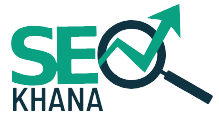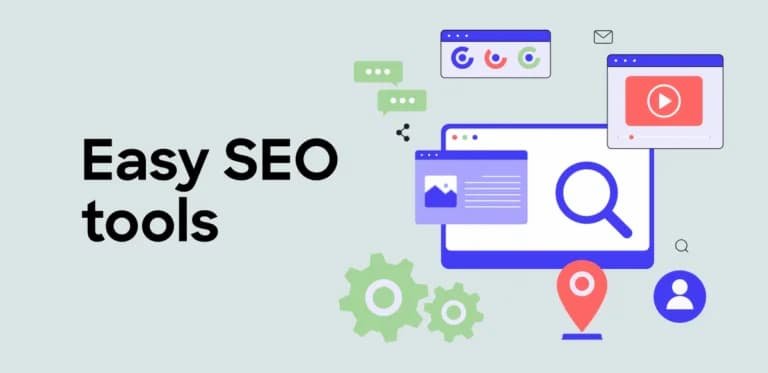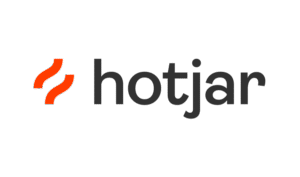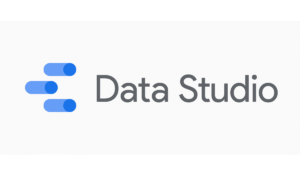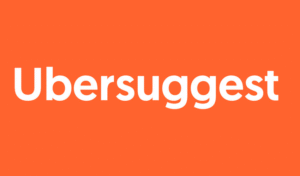In the vast world of digital marketing, visibility is everything — and that’s exactly what SEO tools help you achieve. These powerful platforms are designed to improve your website’s performance by analyzing keywords, monitoring backlinks, auditing technical issues, and tracking rankings. Whether you’re a business owner, content creator, or digital strategist, using the right tools is essential for gaining a competitive edge.
With so many options available in 2025, choosing the best tools can feel overwhelming. This article will guide you through the top tools—both free and paid—that can help you grow your online presence, attract more organic traffic, and stay ahead in search engine results.
What are SEO tools?
SEO tools are essential digital resources used to optimize websites for search engines. They help businesses improve online visibility through keyword research, backlink tracking, technical audits, and performance monitoring. Whether you’re managing a personal blog or a large e-commerce site, tools are key to understanding how your content ranks—and how to improve it.
A great example of accessible platforms is free SEO tools, which allow startups and small businesses to optimize their websites without breaking the bank. One of the most commonly used free platforms is Small SEO Tools, offering a wide range of functions including keyword analysis and the these tools plagiarism checker, which helps maintain content originality and search engine trust.
For marketing agencies, white-label solutions offer the advantage of delivering high-quality reports under their own brand. Companies like SEO Khana rely on every reliable technical SEO tool to provide professional, data-driven SEO services to their clients. As a trusted name in the digital marketing industry, SEO Khana combines hands-on expertise with powerful SEO tools to deliver measurable results that help businesses grow and succeed online.
Why do you need SEO tools?
In a competitive digital landscape, understanding and improving your website’s visibility is not just important — it’s essential. That’s where these tools come into play. They provide insights into how your website is performing, help identify technical issues, suggest optimization strategies, and track keyword rankings. Whether you’re a small business owner or a digital marketing agency, using the best SEO tools can significantly boost your online success.
For businesses targeting specific regions, local SEO tools are especially useful. They help optimize your website for location-based searches, allowing you to connect with nearby customers and dominate local search results. On the other hand, online SEO tools offer the flexibility of accessing optimization resources from any device without the need for software installation — making them perfect for remote teams and on-the-go professionals.
Content originality is another critical ranking factor, which is why using plagiarism checker these tools is vital. These tools ensure that your content is unique, authentic, and free from duplication — helping you maintain credibility and avoid penalties from search engines.
Even if you’re on a tight budget, there are plenty of these tools available free of charge that offer impressive features to get you started. From keyword tracking to site audits, these tools provide great value without any upfront investment — making them ideal for startups and small businesses. Running a basic on-page SEO audit with these tools can help you identify quick wins and prioritize improvements that enhance your site’s visibility and performance early on.
Best SEO tools (free and paid)
Choosing the right these tools can make a significant difference in how effectively you improve your website’s visibility and performance. Whether you’re just starting or managing multiple client accounts, having access to the best SEO tools—both free and paid—can help you make data-driven decisions that drive real results.
| Tool Name | Type | Key Features |
| Google Search Console | Free | Monitors site performance, indexing status, and search visibility |
| Ubersuggest | Free + Paid | Keyword research, domain analysis, and competitor tracking |
| Small SEO Tools | Free | Offers a wide range of online SEO tools including a plagiarism checker |
| Answer the Public | Free + Paid | Discover content ideas and search queries based on user intent. |
| SEMrush | Paid | All-in-one suite for SEO, PPC, content, and competitive analysis. |
| Ahrefs | Paid | Extensive backlink analysis, keyword tracking, outboind links , and content explorer |
| Moz Pro | Paid | Keyword suggestions, link building, and site audits |
| Surfer SEO | Paid | Real-time content optimization based on SERP data |
know more about robots.txt and Screaming Frog Spider Guide article
How to choose the right SEO tool
Selecting the right tools is essential to improving your website’s visibility and achieving measurable results. Here’s how to make the best choice, step by step:
1. Define Your SEO Goals
Before choosing a tool, clearly outline what you need it for. Are you focusing on on-page SEO, technical SEO, link building, or content creation?
✅ Example:
If you’re primarily working on content quality and originality, tools like Small SEO Tools with a built-in plagiarism checker would be ideal. But if your goal is to analyze backlinks or track keywords, a more advanced tool like Ahrefs or SEMrush may be better.
2. Start with Free SEO Tools
If you’re just getting started or have a limited budget, explore free SEO tools first. They often cover basic yet essential features like keyword suggestions, meta tag analysis, and site performance.
✅ Example:
Google Search Console, Ubersuggest, and Small SEO Tools offer solid features to help you understand your site’s performance without cost.
3. Check for White Label Tools (For Agencies)
If you’re an agency or freelancer offering SEO services to clients, look for white label SEO tools. These tools allow you to customize reports with your own branding.
✅ Benefit:
This helps you present a more professional image and streamline client communication.
4. Evaluate Features and Capabilities
Not all tools are created equal. Compare the functionalities: keyword tracking, site audit, backlink analysis, competitor research, content optimization, and more.
✅ Tip:
The best SEO tools combine multiple functions in one platform, saving time and increasing efficiency.
5. Assess Usability and Interface
The tool should be user-friendly and easy to navigate, especially if you’re not a technical expert.
✅ Tip:
Look for clean dashboards, intuitive design, and clear instructions to avoid wasting time learning how to use the tool.
6. Scalability and Integration
Choose a tool that can grow with your needs. It should support additional features, users, or websites as your business expands.
✅ Example:
Platforms like SEMrush or Moz offer scalable plans that can accommodate agencies, teams, or solo users.
7. Test with Free Trials or Demos
Before committing to a paid plan, use trial versions to explore whether the tool fits your workflow and needs.
✅ Tip:
Most premium tools offer 7–30 day trials take advantage of these to test functionality and support.
8. Check Reviews and Community Feedback
Read user reviews and case studies to see how others in your industry are using the tool. Honest feedback reveals performance and support quality.
✅ Platforms to check:
G2, Capterra, Reddit, or SEO community forums.
learn more about:
Tips for using SEO tools effectively
Using search engine optimization tools effectively can make a significant difference in the performance and visibility of your website. Here are some key tips to help you get the most out of your SEO toolkit:
- Understand Your Goals First
Before diving into any tool, be clear about what you’re trying to achieve—whether it’s better rankings, technical site fixes, or content improvements. This helps you choose the right SEO tools, whether they’re designed for local businesses or for broader online platforms. - Start with Free SEO Tools
If you’re just beginning, experiment with free search engine optimization tools . Platforms like Small Tools offer a variety of features, including keyword research, meta tag analysis, and their widely used Small search engine optimization tools plagiarism checker, which ensures your content is unique. - Leverage Plagiarism Checkers for Content Accuracy
To maintain content integrity and avoid search engine penalties, regularly use plagiarism checker SEO tools. This is especially important for blogs, landing pages, and articles where originality impacts trust and SEO score. - Use the Best SEO Tools for Deep Analysis
For more advanced insights, invest in the best SEO tools that offer comprehensive features like backlink analysis, competitor tracking, and site audits. These tools provide data-driven strategies to outperform your competition. - Automate and Schedule Tasks
Many search engine optimization tools free and paid offer automated reporting, rank tracking, and alerts. Setting these up saves time and ensures you stay updated on important metrics. - Customize Reports with White Label SEO Tools
If you’re offering SEO services to clients, use white label search engine optimization tools to generate professional, branded reports. This enhances your credibility and builds trust with clients. - Combine Multiple Tools Strategically
Don’t rely on just one tool. For example, you might use Small SEO Tools for content checks, Google Search Console for indexing issues, and another platform for backlink tracking. Combining tools allows for a fuller picture of your SEO health
FAQs about SEO tools
1. What are SEO tools used for?
search engine optimization tools help website owners and marketers analyze, optimize, and monitor various aspects of their websites to improve visibility on search engines like Google. These tools can assist with keyword research, backlink analysis, technical audits, content optimization, and more.
2. Are there any free SEO tools available?
Yes, there are many free SEO tools such as Google Search Console, Ubersuggest,. These tools offer essential features for beginners and small businesses, including keyword suggestions, meta analysis, and content checks like plagiarism checker.
3. What are white label SEO tools?
White label SEO tools allow digital marketing agencies to brand reports and dashboards with their own logos and names. This is ideal for offering SEO services to clients in a professional and customized manner.
4. Which is better: free or paid SEO tools?
Both have their advantages. Free SEO tools are great for basic tasks and learning. However, the best SEO tools (usually paid) offer more advanced features, reliable data, and integrations that are crucial for serious SEO strategies.
5. What is the best SEO tool for local businesses?
Local SEO tools like Moz Local, Bright Local, or Google Business Profile Manager help businesses optimize their presence in local search results, manage reviews, and keep business listings accurate across platforms.
6. Can I rely on plagiarism checker tools for content validation?
Absolutely. Tools like tools plagiarism checker are essential for checking if your content is original. This ensures you avoid duplicate content issues, which can hurt your search engine rankings.
7. Are online SEO tools secure to use?
Most online SEO tools are secure, especially well-known platforms. However, always verify that the site uses HTTPS and doesn’t require unnecessary access to sensitive data.
8. Do these guarantee better rankings?
No tool can guarantee rankings. However, using SEO tools correctly can significantly improve your strategy, allowing you to make informed decisions and enhance your website’s performance over time.
Conclusionfree seo tools
As we move further into 2025, leveraging the right tools has never been more important for maintaining a strong online presence. From keyword research to technical audits and content optimization, the right combination of free and premium SEO tools can transform your website’s performance and help you stay ahead of the competition.
If you’re unsure where to start or how to use these tools effectively, partnering with a trusted expert can make all the difference. Seo Khana, a leading digital marketing agency, specializes in helping businesses harness the full power of tools. Whether you’re looking for in-depth analysis, white-label solutions, or local SEO strategies, Seo Khana provides personalized support to boost your visibility and drive real results.
Start optimizing smarter—because with the right tools and the right team, your website can reach new heights in 2025 and beyond.
